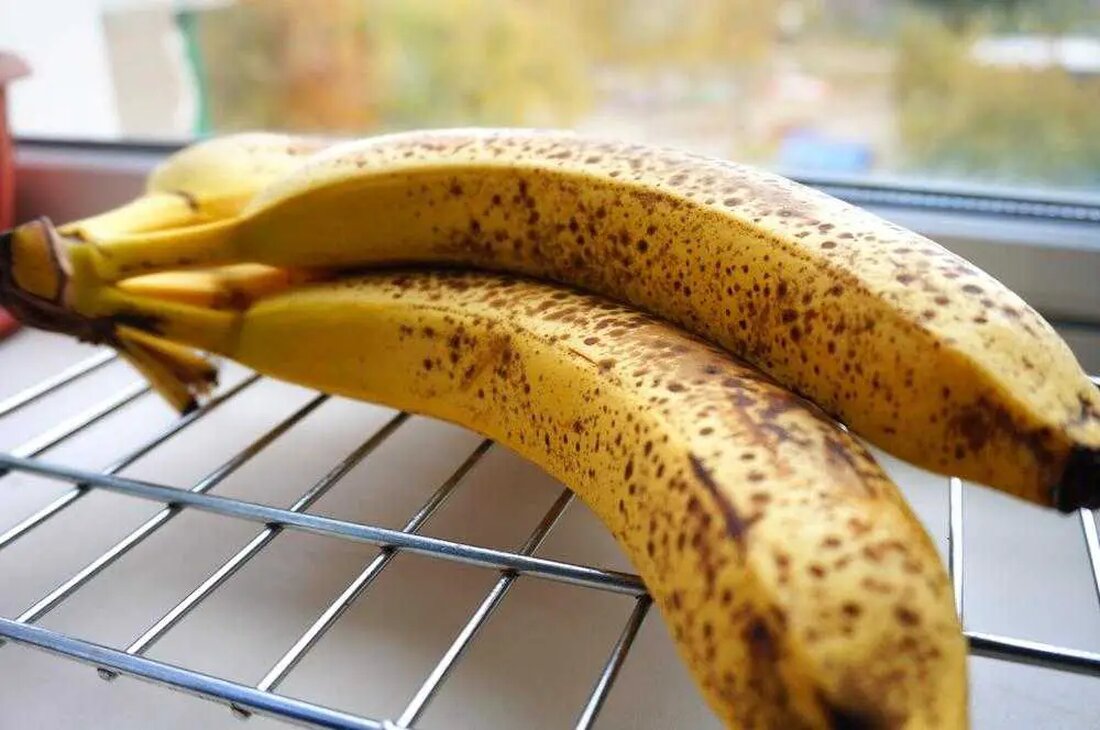Why do bananas turn brown so quickly?
Why do bananas turn brown so quickly? The main culprits for browning bananas are plant hormones—specifically, a specific hormone called ethylene. Ethylene speeds up the ripening process in fruits and is responsible for browning bananas. While some fruits and vegetables only absorb ethylene, others like bananas actively produce the hormone. There are two types of ethylene-producing fruits: climacteric and non-climacteric fruits. Bananas are one of the climacteric fruits that experience a sharp increase in ethylene production during the ripening process. Non-climacteric fruits such as citrus and melons, on the other hand, stop producing ethylene as soon as they are removed from the plant or vine. …

Why do bananas turn brown so quickly?
Why do bananas turn brown so quickly?
The main culprits for browning bananas are plant hormones—specifically, a specific hormone called ethylene. Ethylene speeds up the ripening process in fruits and is responsible for browning bananas. While some fruits and vegetables only absorb ethylene, others like bananas actively produce the hormone.
There are two types of ethylene-producing fruits: climacteric and non-climacteric fruits. Bananas are one of the climacteric fruits that experience a sharp increase in ethylene production during the ripening process. Non-climacteric fruits such as citrus and melons, on the other hand, stop producing ethylene as soon as they are removed from the plant or vine.
This difference means that climacteric fruits continue to ripen even after they are harvested. When these fruits are stored next to non-climacteric fruits or ethylene-absorbing fruits and vegetables, the latter continue to ripen due to proximity to the ethylene source.
How ethylene affects the ripening process of fruits
Upon contact with ethylene, the acids in the fruit begin to break down, resulting in softening of the pulp and breakdown of the green chlorophyll pigments. This changes the appearance of the fruit, making it softer and sweeter. Ethylene continues to interact with bananas and the yellow dye decomposes, creating brown spots - a process called enzymatic browning.
Although bananas are known to speed up the ripening of other fruits, they share this property with some other fruits. Storing ethylene-producing fruits like bananas, apples, and avocados often results in overripe fruit, which is perfect for making banana bread.
Methods to delay the browning process of bananas
Although it can be difficult to completely stop the browning process of bananas, there are some methods to extend their shelf life:
- Verwenden Sie eine Bananenaufhängung
Das Aufhängen von Bananen an einem Haken hilft, Quetschungen und Schäden am weichen Gewebe der Frucht zu verhindern, was die Wirkung von Ethylen verstärken würde. -
Wrap the stems in plastic wrap
Supermarkets often use this trick and wrap the banana stems in plastic wrap. Since the stem of the banana is the main place where ethylene is released, wrapping prevents the hormone from coming into contact with the rest of the banana. -
Store in cool and dark places
Storing bananas in a cool, dark place can also extend their shelf life. Sunlight speeds up the ripening process, and Dole recommends a temperature of 12°C (54°F) as the ideal storage temperature for bananas.
However, it is important to note that storing bananas in a closed container can unknowingly increase ethylene levels and accelerate ripening.
- Kühlschrank: Eine umstrittene Methode
Das Lagern von Bananen im Kühlschrank ist umstritten. Das Einfrieren von Bananen für Smoothies oder Eiscreme kann wirksam sein, aber der Kühlschrankprozess kann zu „Kälteschäden“ führen. Dieser Zustand betrifft vorgereifte Bananen und verhindert, dass sie weiterhin reifen und führt zu einem bitteren, unangenehmen Geschmack. Daher sollten nur perfekt reife Bananen im Kühlschrank aufbewahrt werden. Obwohl ihre Schale schnell dunkelbraun wird, sollte das Innere der Frucht seinen reifen Geschmack beibehalten. -
Use sour juice for sliced banana slices
Banana slices tend to brown within seconds. Applying acidic juice such as lemon or pineapple juice can stop this process by neutralizing the pH of the banana.
Despite their short ripening time, bananas are a popular snack around the world. Understanding the role ethylene plays in their maturation and subsequent browning process is key to prolonging their optimal condition. With the help of techniques such as the use of banana hooks and proper storage, we can enjoy these nutritious fruits for longer. So, although the fight against banana browning may seem hopeless, with the right knowledge we can enjoy these delicious fruits at their perfect ripeness for longer.

 Suche
Suche
 Mein Konto
Mein Konto
